Julie Gavras | |
|---|---|
| Born | Eléna Julie Gavras Paris, France |
| Occupation(s) | Director, screenwriter |
| Years active | 1994–present |
| Parents |
|
| Relatives |
|
Julie Gavras is a French film director and screenwriter. She is known for her film Blame It on Fidel (2006). [1]
Julie Gavras | |
|---|---|
| Born | Eléna Julie Gavras Paris, France |
| Occupation(s) | Director, screenwriter |
| Years active | 1994–present |
| Parents |
|
| Relatives |
|
Julie Gavras is a French film director and screenwriter. She is known for her film Blame It on Fidel (2006). [1]
Gavras started as an assistant director in Italy and France on commercials, television movies and feature films. She worked with directors such as Robert Enrico, Claire Devers, Jacques Nolot, Alexandre Jardin, Camille de Casabianca, Roberto Faenza and Michele Soavi. She also worked with her father Costa-Gavras on his 2002 World War II drama Amen. , on which she served as an assistant director.
In 1998, she directed a short film called Oh les beaux dimanches! produced in Marseille by Comic Strip. Two years later, she directed her first documentary, From Dawn to Night: Songs by Moroccan Women. It was based on a play by Alain Weber mounted at the Bouffes du Nord theater in Paris during the Festival d'Automne. It was broadcast on Arte. In 2002, her second documentary film was released theatrically in France: The Pirate, the Wizard, the Thief and the Children. The film looks at a class of nine-year-olds who make a film at school.
Her first fiction feature film, Blame It on Fidel , premiered at the Deauville American Film Festival in 2006. [2] It was followed by Late Bloomers , a romantic comedy film starring Isabella Rossellini and William Hurt, which was screened at the 61st Berlin International Film Festival. [3]
| Year | Film | Role(s) |
|---|---|---|
| 2002 | The Pirate, the Wizard, the Thief and the Children | Director, cinematographer |
| 2006 | Blame It on Fidel | Director, writer |
| 2011 | Late Bloomers | Director, writer |
| 2018 | Les Bonnes Conditions | Director, writer, cinematographer |
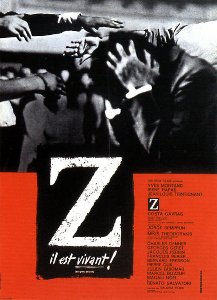
Z is a 1969 political thriller film directed by Costa-Gavras, from a screenplay he co-wrote with Jorge Semprún, adapted from the 1967 novel of the same name by Vassilis Vassilikos. The film presents a thinly-fictionalized account of the events surrounding the assassination of the democratic Greek politician Grigoris Lambrakis in 1963. With its dark view of Greek politics and its downbeat ending, the film captures the director's outrage about the junta that then ruled Greece. The title refers to a popular Greek protest slogan meaning "he lives," in reference to Lambrakis.

Julie Delpy is a French-American actress, film director, screenwriter, and singer-songwriter. She studied filmmaking at NYU's Tisch School of the Arts and has directed, written, and acted in more than 30 films, including Europa Europa (1990), Voyager (1991), Three Colors: White (1993), the Before trilogy, An American Werewolf in Paris (1997), and 2 Days in Paris (2007).

Penelope Spheeris (born December 2, 1946 is an American film director, producer, and screenwriter. She has directed both documentary and scripted films. Her best-known works include the trilogy titled The Decline of Western Civilization, each covering an aspect of Los Angeles underground culture, and Wayne's World, her highest-grossing film.
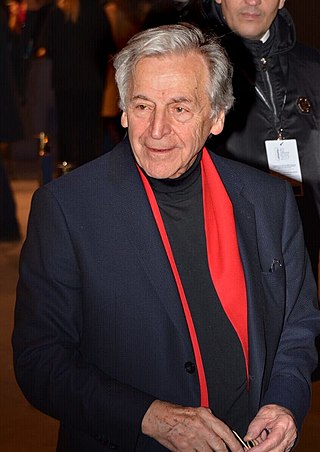
Costa-Gavras is a Greek-French film director, screenwriter, and producer who lives and works in France. He is known for political films, such as the political thriller Z (1969), which won an Academy Award for Best Foreign Language Film, and Missing (1982), for which he won the Palme d'Or and an Academy Award for Best Adapted Screenplay. Most of his films have been made in French, but six of them were made in English.
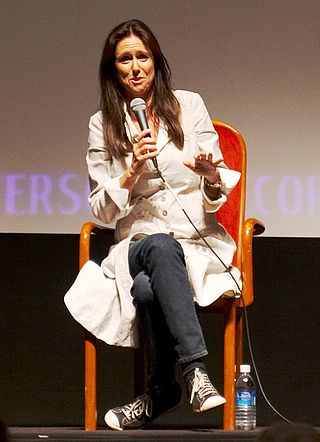
Julie Taymor is an American director and writer of theater, opera, and film. Her stage adaptation of The Lion King debuted in 1997 and received eleven Tony Award nominations, with Taymor receiving Tony Awards for her direction and costume design. Her film Frida, about Mexican artist Frida Kahlo, was nominated for five Academy Awards, including a Best Original Song nomination for Taymor's composition "Burn It Blue". She also directed the jukebox movie musical Across the Universe, based on the music of The Beatles.
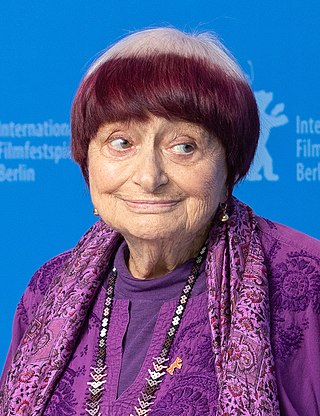
Agnès Varda was a Belgian-born French film director, screenwriter, photographer, and artist. Her pioneering work was central to the development of the widely influential French New Wave film movement of the 1950s and 1960s. Her films focused on achieving documentary realism, addressing women's issues, and other social commentary, with a distinctive experimental style.

The Deauville American Film Festival is a yearly film festival devoted to American cinema, which has taken place since 1975 in Deauville, France.

Euzhan Palcy is a French film director, screenwriter, and producer. Her films are known to explore themes of race, gender, and politics, with an emphasis on the perpetuated effects of colonialism. Palcy's first feature film Sugar Cane Alley (1983) received numerous awards including the César Award for Best First Feature Film. For directing A Dry White Season (1989), she became the first black female director to have a film produced by a major Hollywood studio, that being by MGM.
Women's cinema primarily describes cinematic works directed by women filmmakers. The works themselves do not have to be stories specifically about women and the target audience can be varied.

Thelma Schoonmaker is an American film editor, known for her over five decades of work with director Martin Scorsese. She has received numerous accolades including three Academy Awards, two BAFTA Awards, as well as a Golden Lion in 2014 and the BAFTA Fellowship in 2019. She has received eight Academy Award for Best Film Editing nominations, the most in Academy history alongside frequent Steven Spielberg collaborator Michael Kahn.

Lauren Greenfield is an American artist, documentary photographer, and documentary filmmaker. She has published four photographic monographs, directed four documentary features, produced four traveling exhibitions, and published in magazines throughout the world.
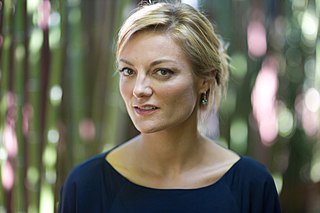
Lucy Walker is an English film director. She has directed the documentaries Devil's Playground (2002), Blindsight (2006), Waste Land (2010), Countdown to Zero (2010), and The Crash Reel (2013). She has also directed the short films The Tsunami and the Cherry Blossom (2011) and The Lion's Mouth Opens (2014).

Marie Kremer is a Belgian actress. Her first leading role was in the 2003 movie I Always Wanted to be a Saint ., for which she won the Créteil International Women's Film Festival's Female Talent Award. After that, she played in St.Jacques-La Mecque, a film about a group of people on their way to Santiago de Compostela. She is also to be seen in Caché, and also in Ravages, a film from Christophe Lamotte, Blame it on Fidel and Beneath the rooftops of Paris. In 2012 she was nominated for the Magritte Award for Best Supporting Actress.

Blame It on Fidel is a 2006 French-Italian drama film directed by Julie Gavras. The screenplay, written by Gavras, is based on Domitilla Calamai's Italian novel of the same name. The film stars Nina Kervel-Bey, Julie Depardieu, and Stefano Accorsi.
Françoise Bonnot was a French film editor with more than 40 feature film credits.
Yvonne Welbon is an American independent film director, producer, and screenwriter based in Chicago. She is known for her films, Living with Pride:Ruth C. Ellis @ 100 (1999), Sisters in Cinema (2003), and Monique (1992).
Armand Amar is a French composer, who grew up in Morocco. He won the 2008 César Award for Best Music for Le Concert.

Radu Jude is a Romanian film director and screenwriter.

Michale Boganim is a French-Israeli screenwriter and film director. Her feature-length films include La Terre outragée (2011) or Odessa, Odessa (2005).

Julie Mathilde Charlotte Claire Bertuccelli is a French director born February 12, 1968, in Boulogne-Billancourt.